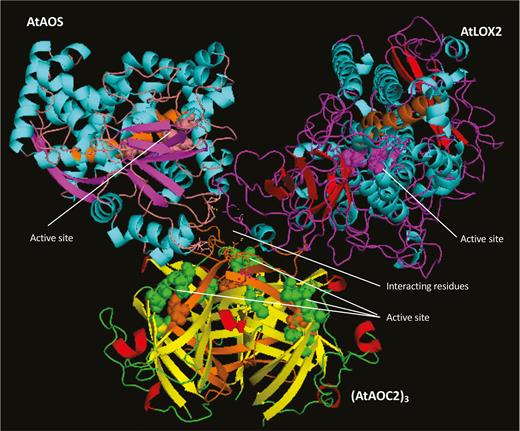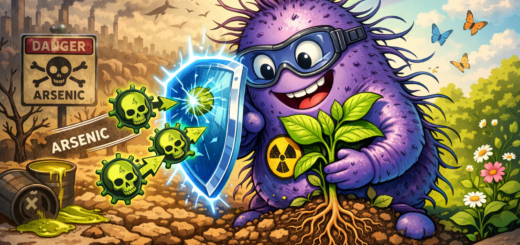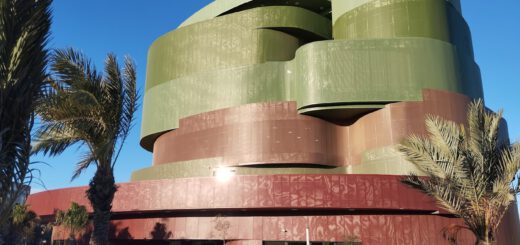Substrate channeling in JA biosynthesis

I am very happy that this work got finally published. Thanks to all co-authors for joining forces in this truly international project
Pollmann, S. et al. 2019 Journal of Experimental Botany
Oxygenated membrane fatty acid derivatives termed oxylipins play important roles in plant defense against biotic and abiotic cues. Plants challenged by insect pests, for example, synthesize a blend of different defense compounds that include volatile aldehydes and jasmonic acid (JA), among others. Because all oxylipins are derived from the same pathway, we investigated how their synthesis might be regulated, focusing on two closely related atypical cytochrome P450 enzymes designated CYP74A and CYP74B, respectively, allene oxide synthase (AOS) and hydroperoxide lyase (HPL). These enzymes compete for the same substrate but give rise to different products: the final product of the AOS branch of the oxylipin pathway is JA, while those of the HPL branch comprise volatile aldehydes and alcohols. AOS and HPL are plastid envelope enzymes in Arabidopsis thaliana but accumulate at different locations. Biochemical experiments identified AOS as a constituent of complexes also containing lipoxygenase 2 (LOX2) and allene oxide cyclase (AOC), which catalyze consecutive steps in JA precursor biosynthesis, while excluding the concurrent HPL reaction. Based on published X-ray data, the structure of this complex was modelled and amino acids involved in catalysis and subunit interactions predicted. Genetic studies identified the microRNA 319-regulated clade of TCP (TEOSINTE BRANCHED/CYCLOIDEA/PCF) transcription factor genes and CORONATINE INSENSITIVE 1 (COI1) as controlling JA production through the LOX2-AOS-AOC2 complex. Together, our results define a molecular branch point in oxylipin biosynthesis that allows fine-tuning of the plant’s defense machinery in response to biotic and abiotic stimuli.


